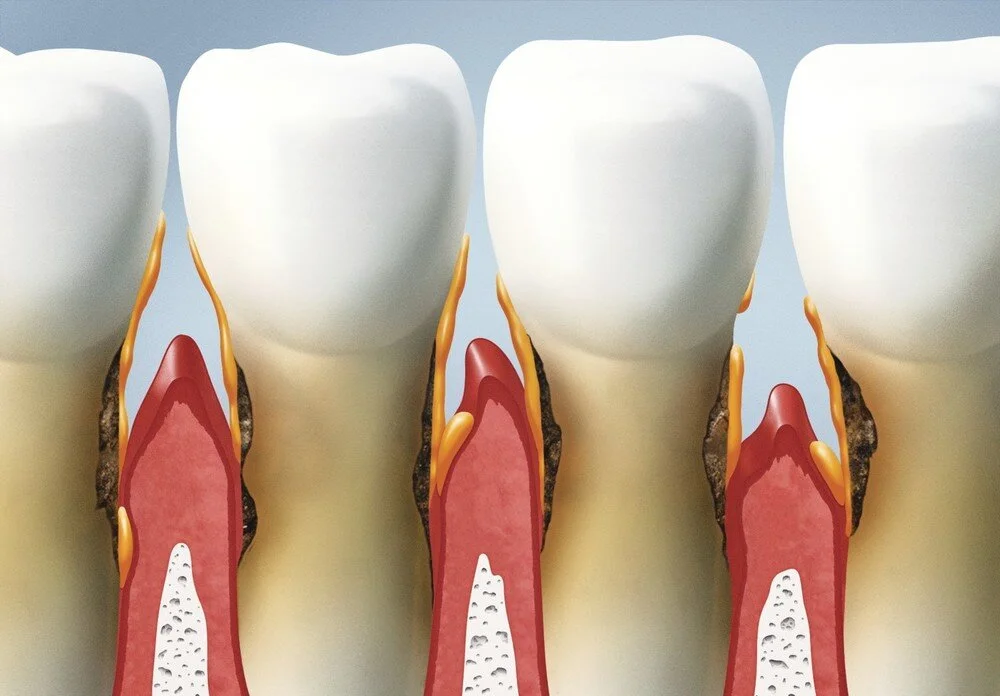5 ways to prevent gum disease
Gum disease is a serious issue that can lead to tooth loss and other health problems. It's important for everyone, adults and children alike, to take the correct preventive measures to avoid developing gum disease in the future.
Contact the team at Cambridge City Dental to book your next dental appointment.
Your gums protect your teeth from harmful bacteria, and if you don't properly care for them, harmful bacteria could deteriorate your bones and gums. Over time, deterioration in your mouth could eventually result in tooth loss.
The early stage of gum disease is called gingivitis. When left untreated, gingivitis can develop into a more severe stage of gum disease called periodontitis. Along with tooth loss, severe cases of gum disease have also been associated with other health conditions, like heart disease and diabetes. This can also lead to a weakened immune system as the body is working to try and fight the bacteria.
Signs of Gum Disease
Common symptoms of gum disease often include:
Loose teeth
Pain when chewing
Pus around the gums or teeth
Receding gums
Swollen gums
Bleeding gums
You should always look out for these signs, especially if you’re at high-risk for gum disease. Individuals who may be at high-risk include older individuals, smokers, and those with a family history of gum disease. Talk with your dentist if you believe you’re at high-risk for gum disease.
What Causes Gum Disease?
When learning how to prevent gum disease. It’s important to first learn about what causes gum disease. The main cause of gum disease is often poor oral hygiene. This is because gum disease is usually caused by a build-up of plaque on the teeth. Plaque is a sticky substance made from leftover food particles and saliva which builds up between and on the surfaces of your teeth. It's often found in hard to reach places, such as under the gum line, where it can stay for days or even weeks if not removed. It forms a hard substance that cannot be removed by regular brushing, known as tartar or calculus.
Gum disease can also be caused by other factors including health conditions, medications, and hormonal changes. Therefore, if you are ever concerned about your oral health, it’s best to speak to your dentist for advice.
5 Ways to Prevent Gum Disease
Fortunately, you can prevent your chances of developing gum disease by regularly practicing good oral hygiene habits. These include:
1. Brushing
Food on your teeth can form into a sticky, colourless bacteria called plaque. Untreated plaque can harden into tartar, which causes gum disease.
Once tartar forms on your teeth, you cannot remove it by flossing or brushing. You’ll need a dentist to remove it. You can prevent plaque from forming on your teeth by brushing your teeth after eating. Do your best to brush at least two times a day and for three minutes each time. Use fluoride toothpaste, and brush along your gum line.
Also, don’t forget to brush your tongue when you brush your teeth as bacteria tends to accumulate there.
3. Using Mouthwash
You can also reduce the amount of plaque on your teeth by using antibacterial mouthwash. Many times, not all food particles are removed by flossing and brushing. Mouthwash alone can remove up to 20% of the plaque from your teeth.
Keep in mind that mouthwash isn't a substitute for flossing and brushing. Instead, it’s a way to further reduce the plaque in your mouth after you have brushed and flossed.
5. Visiting the Dentist Regularly
One of the best ways to prevent gum disease is by visiting your dentist for regular dental cleans and check ups. When you visit the dentist, they can also inspect your mouth for early signs of gum disease and remove built up plaque from your teeth to help further prevent gum disease.
In severe cases, your dentist may recommend root planing. This process treats gum infections and periodontal pockets. Periodontal pockets that are larger than 5 millimetres deep can sometimes require surgery. Periodontal pockets are dangerous and allow bacteria to infect the gums or bones.
Most dentists recommend a general dental check up every six months. However, you may want to visit your dentist sooner if you notice early signs of gum disease.
2. Flossing
Another way to prevent gum disease is by flossing every day. When you floss, you remove plaque and food particles that get lodged in between your teeth. Often, flossing can reach areas that your toothbrush cannot.
If you don't like flossing, try using a floss holder to receive the benefits of flossing while making the process easier and faster.
4. Eating Healthy
Eating too many sugary or starchy foods can increase your chances of developing gum disease. This is because sugary and starchy foods can create plaque, which increases your chances of developing gum disease. Sugars can also erode teeth and cause tooth decay.
Eat a healthy diet to ensure you have the nutrients needed to prevent gum disease.
Contact Cambridge City Dental to Book Your Regular Dental Check Up
By practicing good oral hygiene and taking the correct preventative measures you can prevent gum disease. Use these tips to help keep your gums healthy and reduce the risk of developing gum disease.
If you are concerned about the health of your teeth or gums, our dentists are here to help. Call or book an appointment online today!






